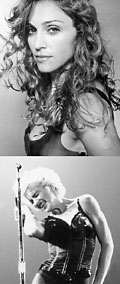SUICIDE’S MORE complicated than Scottish novelist A.L. Kennedy imagined. She begins On Bullfighting—a book that’s somewhere between a lengthy personal essay and a treatise on the sport—by straddling the windowsill of her fourth-story Glasgow apartment, barefoot. Before succumbing to self-consciousness, she originally wanted to jump to her death in the nude because “with no clothes to disguise me, there would be no more pretence that I’m anything more than function, mechanics, butcher’s shop window stuff.”
ON BULLFIGHTING
by A.L. Kennedy (Anchor Books, $11)
Kennedy’s more complex than meat. On Bullfighting reveals her to be a writer who’s a bit sarcastic, somewhat neurotic, quite talented, and extremely earnest. But she sees herself as a brokenhearted woman who’s lost two loved ones—a man who died and another who hurt her—as well as her craft: “I’m a writer who doesn’t write and that makes me no one at all.” So when she’s asked to journey to Spain and wax prolific about the corrida de toros (bullfighting), she finds the means of assessing her worth: “I wanted to see if I was still capable of writing anything at all. . . .” If she doesn’t agree to enter the world of the torero (matador), a man or a woman “who risk[s] death for a living,” she’s assuring her own demise.
Why read a work on bullfighting written “with entirely selfish motives” by an insecure, self-identified member of “the Sisterhood of the Legally Medicated”? Because On Bullfighting‘s subtly innovative and sweetly heretical. Kennedy displays quirky literary habits, like employing footnotes even though they’re “something I hate,” and she immediately distances herself from Papa Hemingway, author of the bullfighting-skills-equal-writing-skills classic, Death in the Afternoon: “The Hemingway bravado did nothing for me: the menopausal bar-room stories, the foreigner trying too hard to be part of Spain, but, all the while, hoping to keep it exclusive, defining the country, for the first time, as one vast DT-haunted tourist club.” Instead, she summons the ghost of Federico Garc��Lorca—an irregular Virgil who accompanies her into Spain’s sometimes hellish past—making strange segues during which she compares the persecuted Spanish gay poet to the slaughtered bull.
WHILE KENNEDY sides philosophically with the corrida‘s opposition—those who condemn the sport for its cruelty to animals—she pays respect to bullfighting, “the darling of the Politically Incorrect,” by penning such an exhaustive account of its origins, history, participants, and rules. On Bullfighting offers countless tasty morsels about the bloody sport: Like the Roman gladiators, matadors wear pigtails. All bulls, whether they qualify for the corrida or not, are slaughtered for their beef. It makes no difference whether the matador’s cape is red or blue: In addition to not being able to see anything directly in front of them (their eyes are on either side of their heads), bulls are color-blind. “Antibiotics and advances in medical facilities and techniques have made the modern torero’s life safer,” but the stress of constant touring from Europe to South America and back again evens out the odds of injury.
Though she insists that she has “learned very little” about the corrida, Kennedy arrives at the conclusion that bullfighting lacks grace, and therefore isn’t an art. She asserts, “The corrida . . . can only reveal what beauties it might have if the observer is willing to ignore a great deal of clumsiness, ugliness, and confusion, a great many failures of good faith and technique.” To a far lesser extent, the same statement applies to this text. Kennedy makes a few weak jabs and aborted charges: She fails to provide a satisfactory explanation behind her disillusionment, and she never tells whether bullfighting has reaffirmed her faith in writing. But despite its awkwardness, the eccentric On Bullfighting is thrilling proof that one woman has confronted death and managed—through writing—to exit the ring alive.







